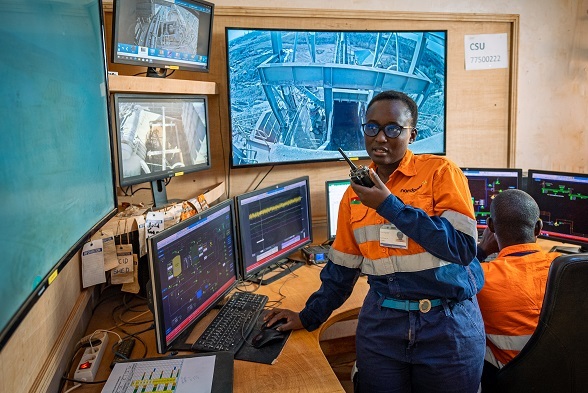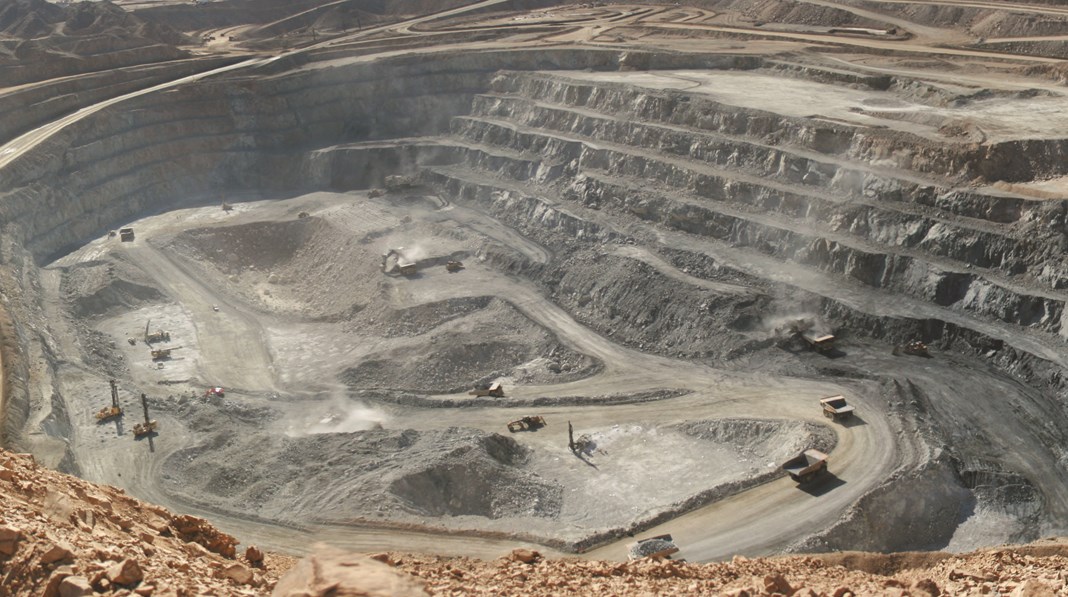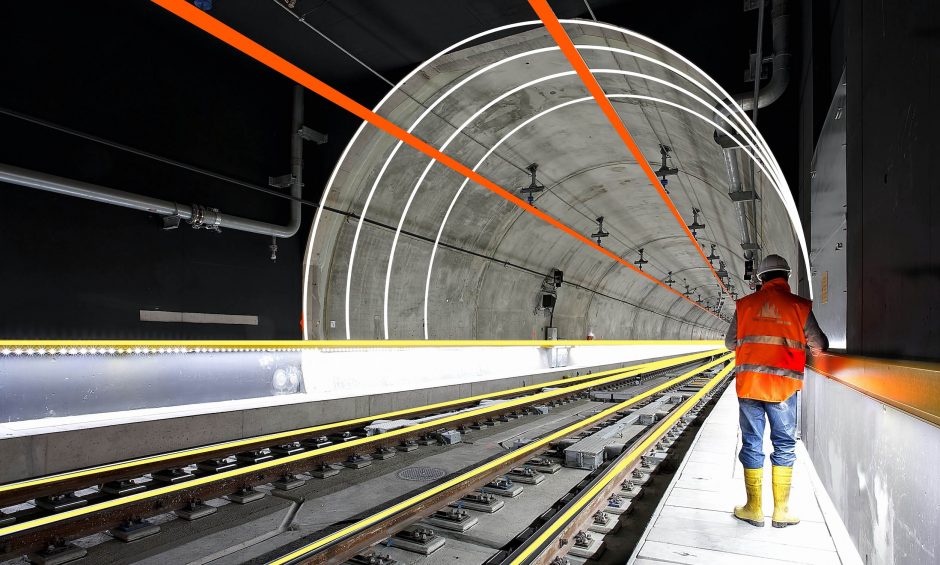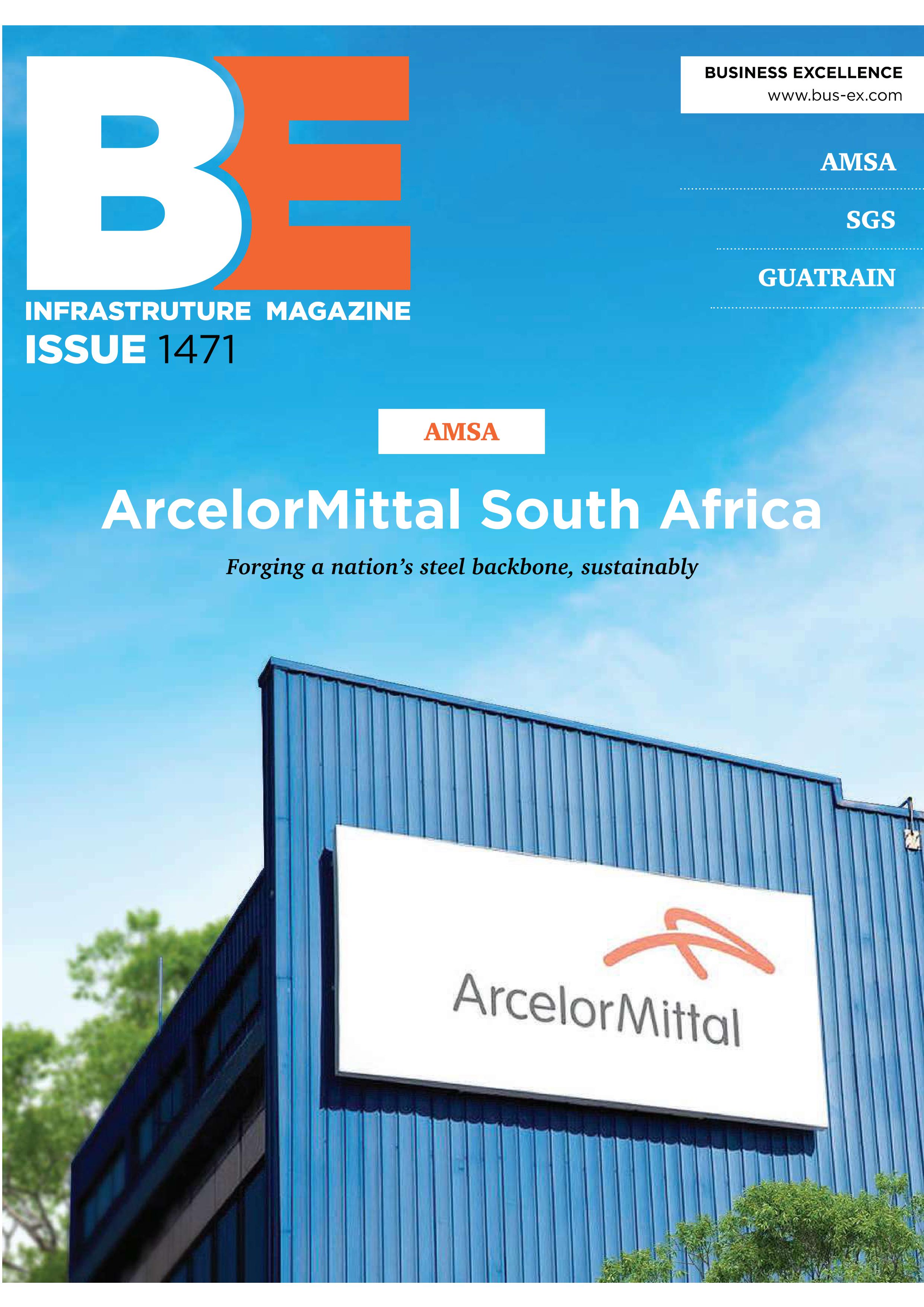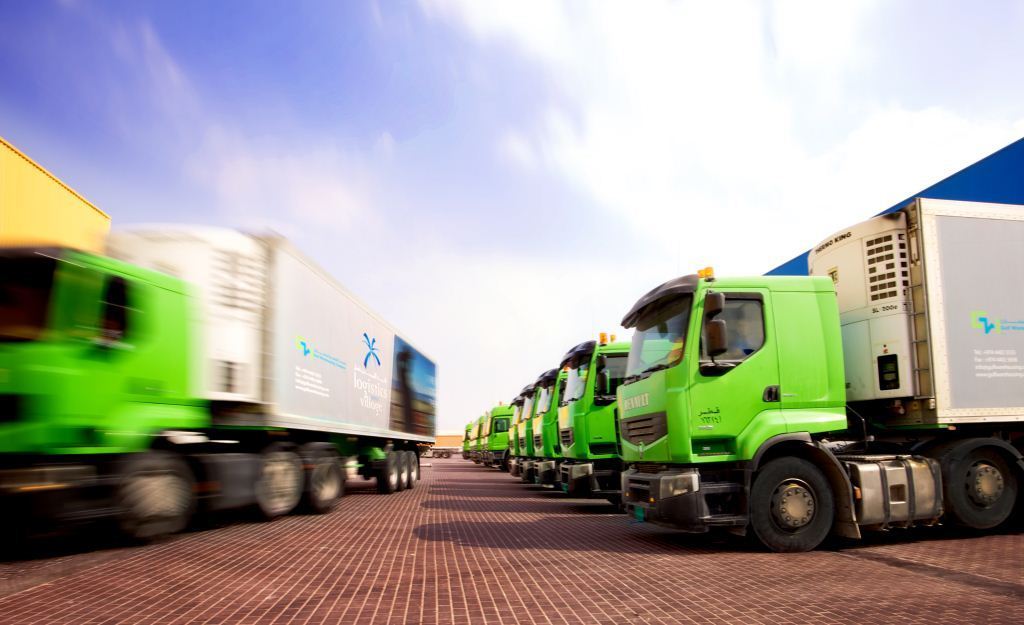
Gulf Warehousing Company had a successful year in 2011 and is within sight of completing one of the finest logistics complexes in the Middle East: its-state-of-the-art Logistics Village Qatar.
Logistics Village Qatar (LVQ) is Qatar’s largest and most modern logistics facility, covering an area of one million square metres. Designed as an integrated and self-contained full-service logistics centre for its customers, who range from government ministries to large retail groups, supermarkets and fast food brands, LVQ offers them everything they could possibly want from a logistics solution. It handles containerised goods, FMCG, electronics, fashion logistics and foodstuffs, as well as the diverse and sometimes very bulky equipment required by customers from various industries.
Qatar’s logistics industry is expected to grow significantly as a number of planned infrastructure projects take off over the next decade, not least for the FIFA World Cup in 2022. “As we get closer to the build-up to the World Cup, we expect to play a big part in serving the logistics needs of this milestone event,” says Group CEO of Gulf Warehousing Company (GWC) Ranjeev Menon, adding that he expects about five per cent of the massive expenditure the Qatari government, currently estimated at $89 billion, has earmarked for infrastructural development to be channelled into the logistics and warehousing sector.
Since we last spoke to Menon, the company has driven forward the construction of LVQ, just 20 kilometres from the centre of Doha, which is currently around 80 per cent complete. At that time, Phase I had just been constructed: now it has not only been handed over but fully occupied as well. Additionally, Phase II had been offered for tender and by the end of June 2012 that too will be completed with 61,000 square metres of additional warehousing and 50,000 square metres of open yard storage, half of which has already been allocated to customers keen to get a foothold on the site and a chance to tap into distribution and storage systems that are as good as can be found anywhere in the world. Phase I and II completed comprise around 150,000 square metres of warehousing space, a 100,000 square metre container yard, a truck maintenance workshop and a laydown area.
Phase III, which is under construction, includes a 100,000 square metre warehouse, expected to be ready by quarter one of 2013. Additionally, LVQ has developed staff accommodation blocks, a central kitchen and a recreational area. Phase III will also have a supermarket to serve not only the LVQ tenants but also tenants in the industrial area.
GWC has put out Phase III to tender: contracts have already been awarded, says Menon, and work has started. “Phase III includes a car storage facility of around 100,000 square metres, and we will have additional warehousing covering the same area, and a 50,000 square metre container yard. By mid-2013 we will have developed the entire one million square metre LVQ site.” LVQ played a big part, he adds proudly, in securing GWC the prestigious award of Best Logistics Infrastructure in the Middle East 2012 at the Supply Chain and Transport Awards in Dubai earlier this year.
Customers whose business is engineering, retail or foodservice share one thing in common—they are not experts in distribution, storage or freight forwarding. In short, logistics is not their core business. Nevertheless it is a sensitive and critical function and one which traditionally they have been reluctant to outsource. That reluctance has been partly overcome by the cost savings achievable by using a competent logistics partner and by the enhanced reputation they gain as their deliveries become more reliable—but it is bolstered by the growing sensitivity of their data. The information they hold on customers, stock, returns and the like is something they are not keen to place in the hands of a third party.
For clients who run automated systems for their processes, GWC has a data centre which can host their servers and systems. The company’s plug and play data centre is the backbone of its IT infrastructure and can cater for hosting clients’ systems. “Some of the customers have old warehouses: we can offer them very modern warehouses with a proper fire fighting system, warehouse management systems, docking doors and RFID in LVQ. If they choose, they can run the warehouse themselves and in that case we are happy to supply them with the services of our data centre to enable them to do that.”
Alternatively, he continues, the client can opt to keep their warehouse and GWC will run it for them, maintaining and managing storage, distribution and maintenance, says Menon. “Most of them have their own warehouses, and they are not prepared to close those and move into ours. We provide them an outsourced team that runs the warehouse at their site.”
GWC has 125 associated offices in different countries, giving it a global freight forwarding capability managed by its freight management system. “This system comes into its own whenever goods are moved but in particular in logistics for large projects, where we move huge pipes for the oil and gas industry for example,” explains Menon. “These jobs require coordination in many countries; the pipes may be produced in one country, assembled in another and shipped from a third. We can draw on these associate offices and they will coordinate the movement of these parts for us, and we will arrange shipping out of the assembly location.”
Back in Qatar the company runs a huge fleet of trucks: over 300 trucks haul more than 700 trailers and there are 52 rigid box trucks, including many refrigerated units. Just as the warehouses are controlled by a warehouse management system (WMS), so the trucks and their loads are controlled by a transport management system (TMS) that tracks all vehicles through a small on-board computer and communicates the truck’s location, speed, fuel consumption and other business-critical data with the control centre. The systems are linked by GWC’s business process management system (BPMS). “Our BPMS extracts crucial data from across the system to give a dashboard to the management; so for example we can look at how many containers we received today and how well we handled them. We look at the lead times for each container movement: if it is too long we will want to know what the problem is. How can we improve next time if we receive a container with the same shipment?”
Standards are standard these days, but GWC takes its accreditations very seriously. “In addition to the generic ISO 9001, we went for ISO 14001 for environmental management because we aim to operate a green logistics company and are very conscious about fuel emissions. We also have OHSAS 18001 covering occupational health and safety standards and ISO 22000 which deals with food safety.” The last of these is vital, he emphasises. GWC has among its customers some very famous fast food chain operators who are meticulous about the temperature control right throughout the logistics process as well as humidity, food safety, hygiene and only having the right kind of containers. “We went for ISO 22000 to convince our major food industry customers that we can really live up to their standards.” Now with the development of data services, GWC is working towards ISO 27000, the information security standard, and expects to achieve it by August 2012.
The fastest-growing sector in affluent Qatar is retail, typified by luxury goods stores. GWC fulfils orders taken in-store and handles returns from its warehouse at LVQ. Bedding down the expansion at LVQ will take up much of the coming year, says Menon, but the company will still find time to grow its current volume of trade with neighbouring Dubai and Saudi Arabia.
Written by John O’Hanlon; research by Paul Bradley



 GulfWarehousing-EMEA-June12-Bro-s.pdf
GulfWarehousing-EMEA-June12-Bro-s.pdf